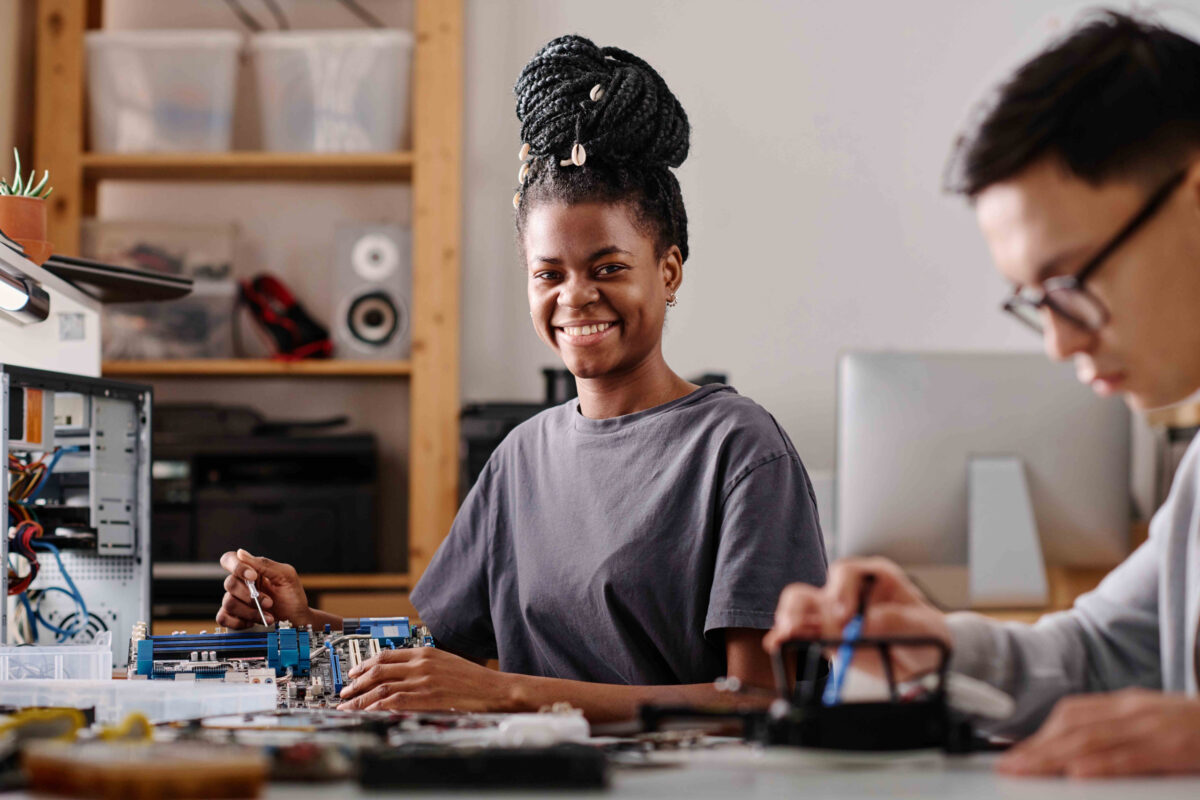Around 190,000 electrical items have been saved by volunteer fixers at repair cafes in the last year, a new report shows
Fans of the BBC TV programme The Repair Shop can rejoice: the first ever report by the international Open Repair Alliance reveals rapid growth and ‘huge public enthusiasm’ for repairs.
Released this week ahead of Saturday’s International Repair Day, it indicates that around 190,000 electrical items have been saved from landfill by volunteer fixers over the course of the past year. The alliance now receives data from 1,158 active groups, compared to only 246 groups in 2019.
They’ve collectively logged more than 200,000 attempts to repair electronic items at community repair events around the world since data started being collected in 2012. Over a quarter of these have taken place in the UK. For all types of items, an estimated 55,000 were successfully fixed in the UK in the last year alone.

Repair cafes have been springing up around the world, where volunteer fixers help people to repair their broken items. There are more than 600 in the UK today, many of which will be holding events to mark the eighth International Repair Day this weekend. The 100-plus celebratory events, where fixers will be tooling up to help appliances in need, include an eco-fair in Cambridge and a photography exhibition showcasing community repair in Leytonstone, London. More than 1,500 events will take place in more than 30 countries overall. This weekend also marks the 15th birthday of the first repair cafe, which was born from Repair Cafe International in the Netherlands in 2009.
Fiona Dear is one of the co-directors of the UK-based Restart Project, which helps ordinary people learn how to fix their electronics and in so doing, to rethink their consumption habits. “We’ve loved watching the UK community repair movement thrive in recent years,” said Dear, “and it’s great to see from the Open Repair Alliance report that this is happening across the world”.
She and colleagues are pushing for policy shifts that would mean fewer usable products are wasted. These could include, advocates say, repair vouchers and VAT cuts that reduce the cost of getting household items refurbished. A YouGov poll indicated strong public appetite for this, with 85% of those polled saying waste items should be repaired, refurbished and donated or sold on.

On the frontline of fixing: Fiona Dear, co-director of the UK-based Restart Project. Image: Mark A Phillips
“The British public don’t want hundreds of thousands of electrical items to go to waste each year and they’d like to see repair and reuse, not recycling, when they take them to their local waste and recycling centres,” Dear added.
Reuse targets is one of the policies being called for in the UK Repair and Reuse Declaration, which has already been signed by more than 350 businesses, institutions and community groups.
In a recent study, the Restart Project’s citizen scientists categorised 599 items that were found at a west London household recycling centre. Nearly half, they said, were actually in working condition or needed only light repairs to become functional once again.

A map of the 600-plus repair cafes across the UK, many of which will hold International Repair Day events. Graphic: Community Repair Network
Stefania Fantini was one of four citizen scientist product testers who checked the e-waste items. “It was heartbreaking to find so many products that could have been given a second life,” she told Positive News. “Fully working lamps, perfectly working printers and hoovers that still sucked – plus the items that could have been easily repaired. There are so many people that could use these things.”
Dear said she looked forward to the new UK government “stepping up to help businesses and the British public move away from our throwaway economy and give the things we own a second life”.
Find your closest repair cafe here, and local International Repair Day events here
Main image: AnnaStills
-
1,158
repair groups currently log data with the Open Repair Alliance
-
200,000
repairs of electronics and electricals have been attempted at community repair events around the world since 2012
-
55,000
The estimated number of successfully fixed items in the last year

